Plenary Speakers
Manufacturing for 3D Functional Mesosystems: From Neural Interfaces to Environmental Monitors
Professor John A. Rogers
Northwestern University, USA
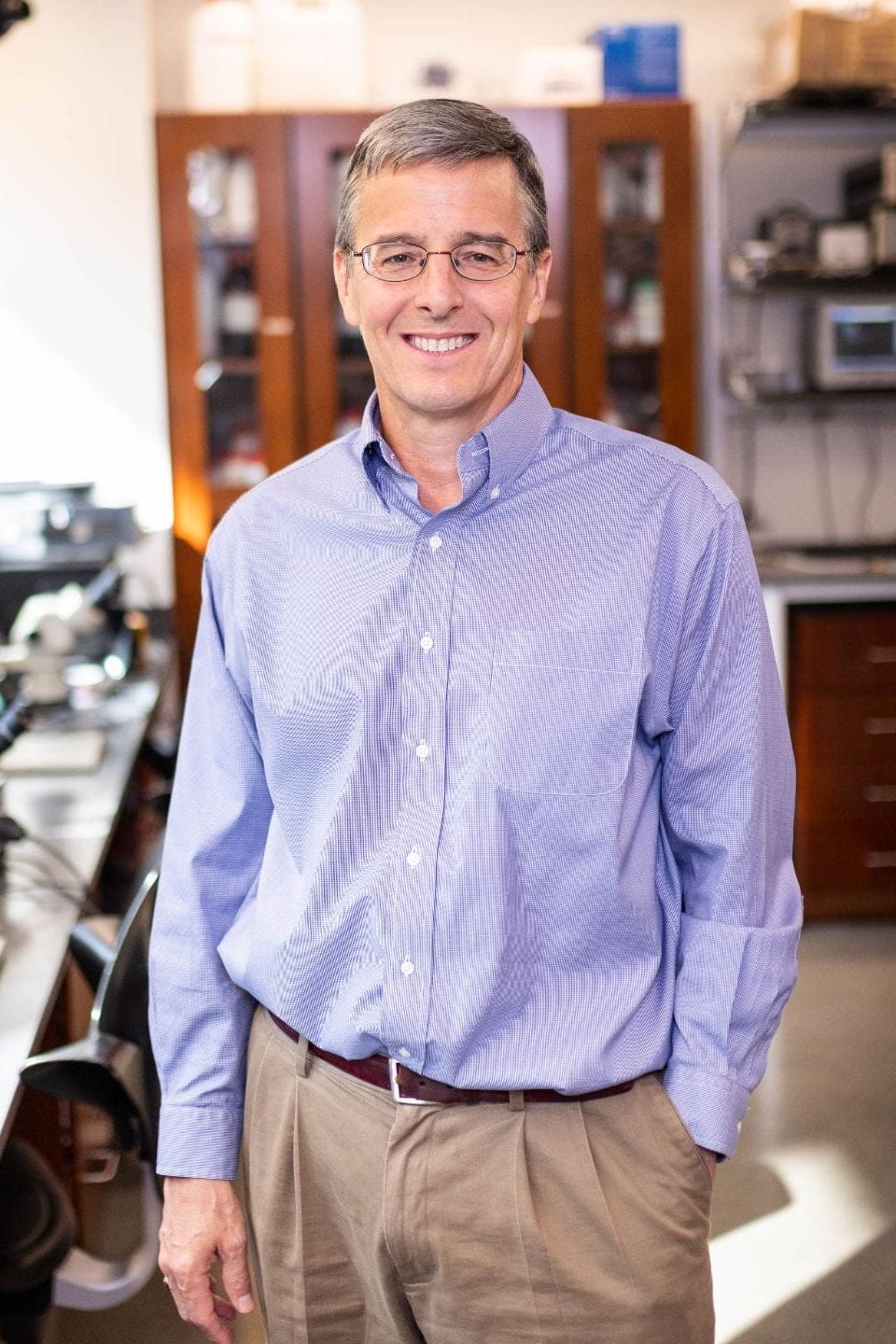 Professor John A. Rogers obtained BA and BS degrees in chemistry and in physics from the University of Texas, Austin, in 1989. From MIT, he received SM degrees in physics and in chemistry in 1992 and the PhD degree in physical chemistry in 1995. From 1995 to 1997, Rogers was a Junior Fellow in the Harvard University Society of Fellows. He joined Bell Laboratories as a Member of Technical Staff in 1997 and then served as Director of the Condensed Matter Physics Research Department from the end of 2000 to 2002. He then spent thirteen years on the faculty at University of Illinois, most recently as the Swanlund Chair Professor and Director of the Seitz Materials Research Laboratory. In the Fall of 2016, he moved to Northwestern University where he is Director of the recently endowed Querrey-Simpson Institute for Bioelectronics. He has co-authored nearly 900 papers and his co-inventor on more than 100 patents. His research has been recognized by many awards, including a MacArthur Fellowship (2009), the Lemelson-MIT Prize (2011), the Smithsonian Award for American Ingenuity in the Physical Sciences (2013), the MRS Medal from the Materials Research Society (2018), the Benjamin Franklin Medal from the Franklin Institute (2019), and a Guggenheim Fellowship (2021). He is a member of the National Academy of Engineering, the National Academy of Sciences, the National Academy of Medicine and the American Academy of Arts and Sciences.
Professor John A. Rogers obtained BA and BS degrees in chemistry and in physics from the University of Texas, Austin, in 1989. From MIT, he received SM degrees in physics and in chemistry in 1992 and the PhD degree in physical chemistry in 1995. From 1995 to 1997, Rogers was a Junior Fellow in the Harvard University Society of Fellows. He joined Bell Laboratories as a Member of Technical Staff in 1997 and then served as Director of the Condensed Matter Physics Research Department from the end of 2000 to 2002. He then spent thirteen years on the faculty at University of Illinois, most recently as the Swanlund Chair Professor and Director of the Seitz Materials Research Laboratory. In the Fall of 2016, he moved to Northwestern University where he is Director of the recently endowed Querrey-Simpson Institute for Bioelectronics. He has co-authored nearly 900 papers and his co-inventor on more than 100 patents. His research has been recognized by many awards, including a MacArthur Fellowship (2009), the Lemelson-MIT Prize (2011), the Smithsonian Award for American Ingenuity in the Physical Sciences (2013), the MRS Medal from the Materials Research Society (2018), the Benjamin Franklin Medal from the Franklin Institute (2019), and a Guggenheim Fellowship (2021). He is a member of the National Academy of Engineering, the National Academy of Sciences, the National Academy of Medicine and the American Academy of Arts and Sciences.
Modeling of Micro Milling Operations: Forces, Tool Run-out Evaluation
Professor Elisabetta Ceretti
University of Brescia, Italy
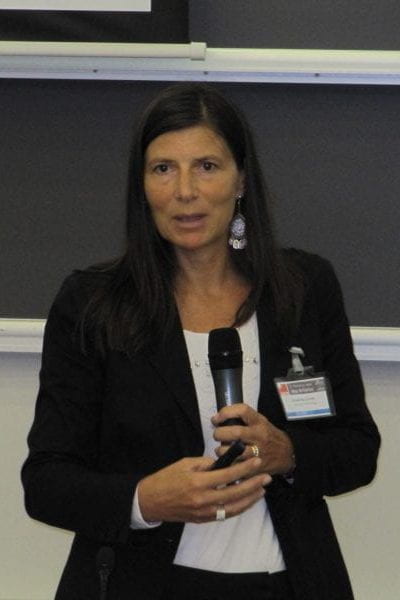 Professor Elisabetta Ceretti is Full Professor in Manufacturing at the University of Brescia since 2010. She graduated in Mechanical Engineering at the University of Brescia, in 1990 with a final dissertation on the “Development of on line tool status monitoring systems”. Since November 1993 to October 2001 she was Researcher at the University of Brescia and from 2001 to 2010 she was Assistant Professor at the same University. During her carrier she covered different roles inside the academic organization, especially in the organization and improvement of the education; today she is responsible of the curriculum of Manufacturing within the degree in Mechanical Engineering, responsible of the exchange student program ERASMUS and of the PhD program in Production Engineering, Vice director of the DIMI from 1-11-20. Elisabetta Ceretti promoted a number of joint-ventures between industries and university with the aim to develop new knowledge in metal forming processes, machining and quality management. From June 2014 to April 2016 she was member of the Board of a2a SpA a multiutility working in the field of energy production, energy management, plant efficiency and services for the environment (production of energy by means of waste). From 01-05-21 she is member of the board of Cembre SpA. Since May 2022 she is member of KAIROS INNOVATION, a Spin Off of the University of Brescia, working in the field of innovative manufacturing processes, process simulation and optimization and micro manufacturing. From December 2022 she is member of the board of LIGHT scral a non profit company with UNIBS, Antares Vision e Dompè Farmaceutici working in the field of Innovation in health care and life science (founded PNRR).
Professor Elisabetta Ceretti is Full Professor in Manufacturing at the University of Brescia since 2010. She graduated in Mechanical Engineering at the University of Brescia, in 1990 with a final dissertation on the “Development of on line tool status monitoring systems”. Since November 1993 to October 2001 she was Researcher at the University of Brescia and from 2001 to 2010 she was Assistant Professor at the same University. During her carrier she covered different roles inside the academic organization, especially in the organization and improvement of the education; today she is responsible of the curriculum of Manufacturing within the degree in Mechanical Engineering, responsible of the exchange student program ERASMUS and of the PhD program in Production Engineering, Vice director of the DIMI from 1-11-20. Elisabetta Ceretti promoted a number of joint-ventures between industries and university with the aim to develop new knowledge in metal forming processes, machining and quality management. From June 2014 to April 2016 she was member of the Board of a2a SpA a multiutility working in the field of energy production, energy management, plant efficiency and services for the environment (production of energy by means of waste). From 01-05-21 she is member of the board of Cembre SpA. Since May 2022 she is member of KAIROS INNOVATION, a Spin Off of the University of Brescia, working in the field of innovative manufacturing processes, process simulation and optimization and micro manufacturing. From December 2022 she is member of the board of LIGHT scral a non profit company with UNIBS, Antares Vision e Dompè Farmaceutici working in the field of Innovation in health care and life science (founded PNRR).
Multi-scale Patterning of Ceramic or Glass Sheet by Micro-/Nano-Imprint Process
Professor Fujio Tsumori
Kyushu University, Japan
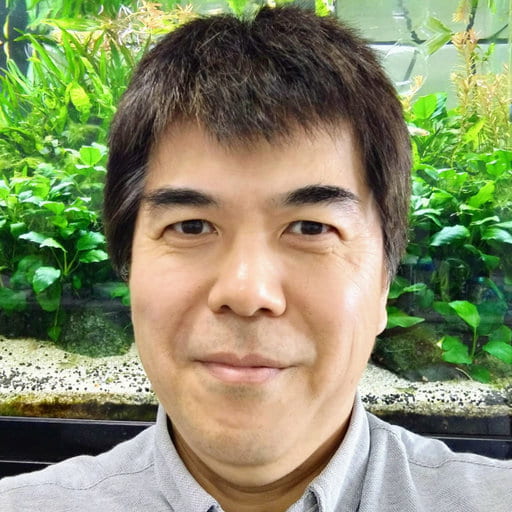 Professor Fujio Tsumori obtained his bachelor, master and Ph.D. degrees all from the University of Tokyo in 1994, 1996 and 1999, respectively. From 2000 to 2001, he was a visiting researcher at Technology Research Institute of Osaka Prefecture. He was an Assistant Professor and a Senior Lecture at Kyoto University from 2001 to 2008. He was Associate Professor at the Department of Mechanical Engineering of Kyushu University and promoted to Full Professor since 2020. In this talk, He will present a novel process that exploits advances in nano-imprint technology to create multi-scale fine surface structures. The aim is to contribute to the rapidly growing field of surface engineering and to inspire researchers and engineers to develop various surface structures that mimic nature’s designs.
Professor Fujio Tsumori obtained his bachelor, master and Ph.D. degrees all from the University of Tokyo in 1994, 1996 and 1999, respectively. From 2000 to 2001, he was a visiting researcher at Technology Research Institute of Osaka Prefecture. He was an Assistant Professor and a Senior Lecture at Kyoto University from 2001 to 2008. He was Associate Professor at the Department of Mechanical Engineering of Kyushu University and promoted to Full Professor since 2020. In this talk, He will present a novel process that exploits advances in nano-imprint technology to create multi-scale fine surface structures. The aim is to contribute to the rapidly growing field of surface engineering and to inspire researchers and engineers to develop various surface structures that mimic nature’s designs.
Metal Additive Manufacturing: A Future?
Professor Adam T. Clare
University of British Columbia, Canada
 Professor Adam T. Clare joined the University of British Columbia from the University of Nottingham in the UK, where he was a Professor in the Department of Mechanical, Materials, and Manufacturing Engineering (M3), and the Rolls-Royce/Royal Academy of Engineering Research Chair.
Professor Adam T. Clare joined the University of British Columbia from the University of Nottingham in the UK, where he was a Professor in the Department of Mechanical, Materials, and Manufacturing Engineering (M3), and the Rolls-Royce/Royal Academy of Engineering Research Chair.In his research, Professor Clare investigates how non-traditional manufacturing methods can be used to create a desired shape while enhancing material properties and creating new surfaces. This research is aimed at creating new methods and materials for use in fields like aerospace and biomedical engineering, which are continuously developing and often require parts and materials with additional functionality or performance. His work involves electrical discharge machining, electron beam melting, laser processing of materials, process monitoring and control, joining technologies, electrolyte jet machining, and additive manufacturing techniques.
Distinguished Invited Speakers
Advanced Manufacturing and Related Research at NSF
Dr. Khershed Cooper
National Science Foundation
 Dr. Khershed P. Cooper is a Program Director for Advanced Manufacturing in the CMMI Division of the ENG Directorate at the NSF. He directs basic research activities in all areas of advanced manufacturing, and associated Manufacturing USA Institutes and NSF-DFG collaborations. He is a disciplinary program officer for the Engineering Research Centers (ERCs), and a co-program officer for cross-cutting programs – Critical Aspects of Sustainability (CAS), Boosting Research Ideas for Transformative and Equitable Advances in Engineering (BRITE), National Nanotechnology Coordinated Infrastructure (NNCI) and Accelerating Research through International Network-to-Network Collaborations (AccelNet). Recently, he also served on detail to the Office of International Science and Engineering (OISE), where he developed collaborations with funding agencies in partner countries. Dr. Cooper is an NSF representative for NSTC’s NSET Sub-committee, which frames the NNI Strategic Plan and for NextFlex (flexible hybrid electronics) and REMADE (circular economy) Manufacturing USA Institutes. Prior to joining NSF, Dr. Cooper was Program Officer for Manufacturing Science at ONR and, concurrently, a Senior Research Metallurgist at NRL. Dr. Cooper received his MS and PhD from the University of Wisconsin–Madison. He has presented over 200 invited and over 70 contributed talks at national and international conferences and workshops. He has nearly 150 publications. He has sponsored and participated in international studies in various emerging areas of advanced manufacturing. He is a Fellow of SME and ASM International and a recipient of ASM International’s Burgess Memorial Award.
Dr. Khershed P. Cooper is a Program Director for Advanced Manufacturing in the CMMI Division of the ENG Directorate at the NSF. He directs basic research activities in all areas of advanced manufacturing, and associated Manufacturing USA Institutes and NSF-DFG collaborations. He is a disciplinary program officer for the Engineering Research Centers (ERCs), and a co-program officer for cross-cutting programs – Critical Aspects of Sustainability (CAS), Boosting Research Ideas for Transformative and Equitable Advances in Engineering (BRITE), National Nanotechnology Coordinated Infrastructure (NNCI) and Accelerating Research through International Network-to-Network Collaborations (AccelNet). Recently, he also served on detail to the Office of International Science and Engineering (OISE), where he developed collaborations with funding agencies in partner countries. Dr. Cooper is an NSF representative for NSTC’s NSET Sub-committee, which frames the NNI Strategic Plan and for NextFlex (flexible hybrid electronics) and REMADE (circular economy) Manufacturing USA Institutes. Prior to joining NSF, Dr. Cooper was Program Officer for Manufacturing Science at ONR and, concurrently, a Senior Research Metallurgist at NRL. Dr. Cooper received his MS and PhD from the University of Wisconsin–Madison. He has presented over 200 invited and over 70 contributed talks at national and international conferences and workshops. He has nearly 150 publications. He has sponsored and participated in international studies in various emerging areas of advanced manufacturing. He is a Fellow of SME and ASM International and a recipient of ASM International’s Burgess Memorial Award.
Magnetically Organized Nanofillers for Multi-Functional Reinforcement of Polymers
Professor Namiko Yamamoto
Pennsylvania State University, USA
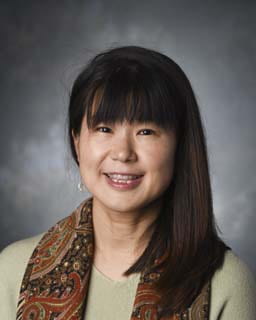 Namiko Yamamoto is an Associate Professor of Aerospace Engineering at Penn State University. She received her B.S., M.S., and Ph.D in Aeronautics and Astronautics from MIT. After the post-doc experiences in Caltech and NASA JPL, she started her faculty appointment in July 2014. She is also an adjunct researcher at Research Institute for Automotive New Materials and Production Technology at Waseda University (June 2019-Present). Yamamoto also organizes activities for the AeroWomen group.
Namiko Yamamoto is an Associate Professor of Aerospace Engineering at Penn State University. She received her B.S., M.S., and Ph.D in Aeronautics and Astronautics from MIT. After the post-doc experiences in Caltech and NASA JPL, she started her faculty appointment in July 2014. She is also an adjunct researcher at Research Institute for Automotive New Materials and Production Technology at Waseda University (June 2019-Present). Yamamoto also organizes activities for the AeroWomen group.
Direct Observations of Tribological Behavior in Cutting with Micro Textured Cutting Tool
Professor Tatsuya Sugihara
Osaka University, Japan
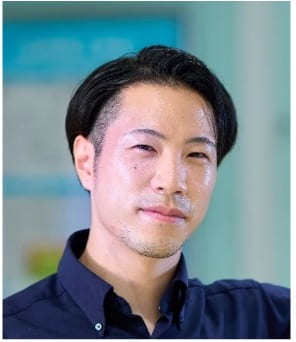 Tatsuya Sugihara is an Associate Professor of Mechanical Engineering in Osaka University, Osaka, Japan. He did his undergraduate and graduate work in Mechanical Engineering at Osaka University. His research and teaching interests are in manufacturing processes, process tribology, and surface engineering. Principal research contributions include developing cutting tools with textured surfaces, uncovering tribological and mechanochemical phenomena in metal cutting process, and cutting of difficult-to-cut materials.
Tatsuya Sugihara is an Associate Professor of Mechanical Engineering in Osaka University, Osaka, Japan. He did his undergraduate and graduate work in Mechanical Engineering at Osaka University. His research and teaching interests are in manufacturing processes, process tribology, and surface engineering. Principal research contributions include developing cutting tools with textured surfaces, uncovering tribological and mechanochemical phenomena in metal cutting process, and cutting of difficult-to-cut materials.
Deterministic Fabrication of Functional Superhydrophobic Microstructure by Nanosecond Laser
Professor Xichun Luo
University of Strathclyde, UK
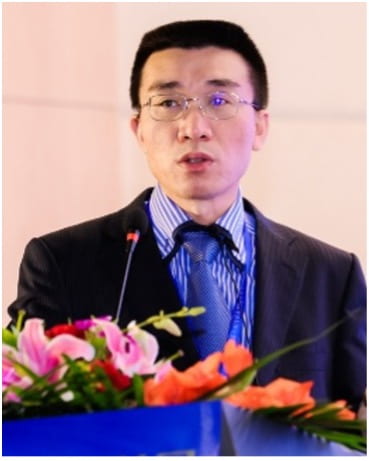 Xichun Luo is a Professor in ultra precision manufacturing and technical director of Centre for Precision Manufacturing (CPM) at the University of Strathclyde (Glasgow), UK. He is an elected Fellow of the International Society for Nanomanufacturing, the International Academy of Engineering and Science and the International Association of Advanced Materials. He is an associate editor for Proceeding of IMechE Part C: Journal of Mechanical Engineering Science, Journal of Micromanufacturing and Journal of Nanomanufacturing and Metrology. His research interests include ultra precision machining, digital manufacturing, hybrid micromachining and nanomanufacturing, as evidenced by two books and more than 200 papers in peer-reviewed highly ranked journals. He won UK Institution of Mechanical Engineers (IMechE) 2015 Ludwig Mond Prize for his work in the application of digital technology in micro- and nano-manufacturing.
Xichun Luo is a Professor in ultra precision manufacturing and technical director of Centre for Precision Manufacturing (CPM) at the University of Strathclyde (Glasgow), UK. He is an elected Fellow of the International Society for Nanomanufacturing, the International Academy of Engineering and Science and the International Association of Advanced Materials. He is an associate editor for Proceeding of IMechE Part C: Journal of Mechanical Engineering Science, Journal of Micromanufacturing and Journal of Nanomanufacturing and Metrology. His research interests include ultra precision machining, digital manufacturing, hybrid micromachining and nanomanufacturing, as evidenced by two books and more than 200 papers in peer-reviewed highly ranked journals. He won UK Institution of Mechanical Engineers (IMechE) 2015 Ludwig Mond Prize for his work in the application of digital technology in micro- and nano-manufacturing.
Additive Manufacturing of Structures and Electronics: Robotic metamaterials that walk, talk and listen
Professor Xiaoyu (Rayne) Zheng
University of California, Berkeley, USA
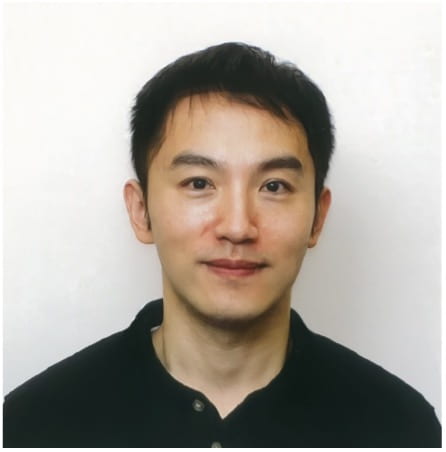 Xiaoyu “Rayne” Zheng directs the Advanced Manufacturing and Metamaterials Laboratory at University of California, Berkeley. His group develops the next generation additive manufacturing processes, material designs and synthesis approaches to create multi-functional materials and all-in-one devices with controlled architectures, compositions and multi-scale features. Their work on ultralight, ultrastrong and resilient metamaterials was featured on MIT Technology Review Top 10 Innovations and on the Cover of Science Magazine and Nature Materials. Prior to his faculty career, Zheng received his Ph.D. degree in Mechanical Engineering from Boston University with the Best Dissertation Award and subsequently worked as a mechanical engineer at the Lawrence Livermore National Laboratory (LLNL). Prof. Zheng has over 50 publications and multiple patents including multiple Science and Nature Materials articles. He has received multiple awards, including NSF CAREER Award, DARPA Young Faculty Award, DARPA Director’s Fellow, Office of Naval Research Young Investigator Award, Air Force Young Investigator Award, Outstanding Assistant Professor Award, 3M Faculty Award, and Freeform Fabrication and Additive Manufacturing Excellence (FAME) Award.
Xiaoyu “Rayne” Zheng directs the Advanced Manufacturing and Metamaterials Laboratory at University of California, Berkeley. His group develops the next generation additive manufacturing processes, material designs and synthesis approaches to create multi-functional materials and all-in-one devices with controlled architectures, compositions and multi-scale features. Their work on ultralight, ultrastrong and resilient metamaterials was featured on MIT Technology Review Top 10 Innovations and on the Cover of Science Magazine and Nature Materials. Prior to his faculty career, Zheng received his Ph.D. degree in Mechanical Engineering from Boston University with the Best Dissertation Award and subsequently worked as a mechanical engineer at the Lawrence Livermore National Laboratory (LLNL). Prof. Zheng has over 50 publications and multiple patents including multiple Science and Nature Materials articles. He has received multiple awards, including NSF CAREER Award, DARPA Young Faculty Award, DARPA Director’s Fellow, Office of Naval Research Young Investigator Award, Air Force Young Investigator Award, Outstanding Assistant Professor Award, 3M Faculty Award, and Freeform Fabrication and Additive Manufacturing Excellence (FAME) Award.